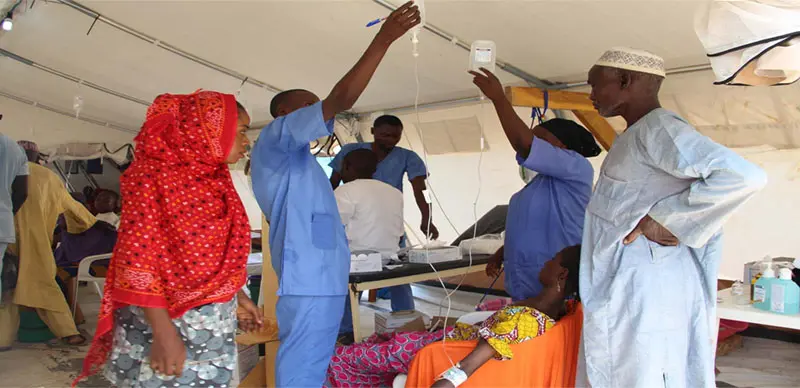
Lagos, Nigeria’s bustling megacity, is grappling with a severe cholera outbreak that has claimed 40 lives and affected over 400 residents, according to the latest reports from the Lagos State Ministry of Health. This crisis has shed light on the persistent health and infrastructure challenges facing Africa’s most populous city.
Historically, Lagos has faced recurrent cholera outbreaks. In 2018, Lagos experienced a significant cholera outbreak that resulted in 11 deaths and 261 reported cases. Another severe outbreak occurred in 2014, with over 13,000 reported cases and 231 deaths across Nigeria, with Lagos being one of the affected states. These incidents highlight the persistent risk of cholera in the city, driven by overcrowded living conditions, open defecation, and reliance on contaminated water sources.
Dr. Olusegun Ogboye, Permanent Secretary of the Lagos State Ministry of Health, confirmed that as of June 20, 2024, there have been 401 suspected cases across multiple local government areas. “Lagos Island, Ajeromi-Ifelodun, and Apapa have reported the highest number of cases,” Dr. Ogboye stated in a press briefing.
The outbreak, which began in early June, coincided with the Eid al-Adha celebrations, locally known as Ileya. Health officials believe the large gatherings during this period may have accelerated the spread of the disease.
In response, the state government has activated its emergency operations center and is collaborating with partners such as the Nigeria Centre for Disease Control (NCDC) and the World Health Organization (WHO). “We’ve established cholera treatment centers in affected areas and are conducting active case finding,” said Dr. Ogboye.
The Lagos State Environmental Protection Agency (LASEPA) has intensified water quality monitoring, particularly in high-risk areas. Mojisola Adebayo, General Manager of LASEPA, revealed, “We’ve collected over 500 water samples from various sources for testing. Preliminary results indicate contamination in some community wells and boreholes.”
This outbreak underscores Lagos’s vulnerability to waterborne diseases. Despite being Nigeria’s economic powerhouse, the city struggles with inadequate sanitation infrastructure. According to the Lagos Bureau of Statistics, only 48% of households have access to improved sanitation facilities.
The densely populated areas of Ajegunle, Makoko, and parts of Apapa are particularly at risk. These communities, often referred to as “slums on stilts,” lack proper sewage systems and rely heavily on contaminated water sources. A 2023 study by the University of Lagos found that 62% of water samples from these areas contained fecal coliforms, indicating widespread contamination.
Governor Babajide Sanwo-Olu has pledged to address these long-standing issues. “We’re fast-tracking our water and sanitation master plan,” the governor announced. “By 2026, we aim to increase access to clean water to 90% of Lagos residents.”
However, urban planning experts argue that more immediate action is needed. Dr. Taibat Lawanson, Professor of Urban Management at the University of Lagos, told me, “While long-term plans are crucial, we need rapid interventions in vulnerable communities. This includes providing temporary sanitation facilities and intensifying public health education.”
The economic impact of the outbreak is also significant. The Lagos Chamber of Commerce and Industry estimates that businesses in affected areas could lose up to ₦500 million ($650,000) daily due to reduced activity and sick leave.
The current crisis demands not just an emergency response but a fundamental rethinking of urban development in Lagos. As the city’s population continues to swell, projected to reach 30 million by 2035, addressing these public health vulnerabilities is not just a matter of well-being but of economic and social stability.
In the coming weeks, all eyes will be on the Lagos State government’s ability to contain this outbreak and, more importantly, on its commitment to preventing future crises through sustainable urban planning and equitable development.
This outbreak serves as a critical wake-up call. Lagos’s ambition to be a global megacity cannot be realized without ensuring the basic health and safety of all its residents, regardless of their socioeconomic status. The path forward requires not just infrastructure investment but a reimagining of how this vibrant city can grow inclusively and sustainably.


